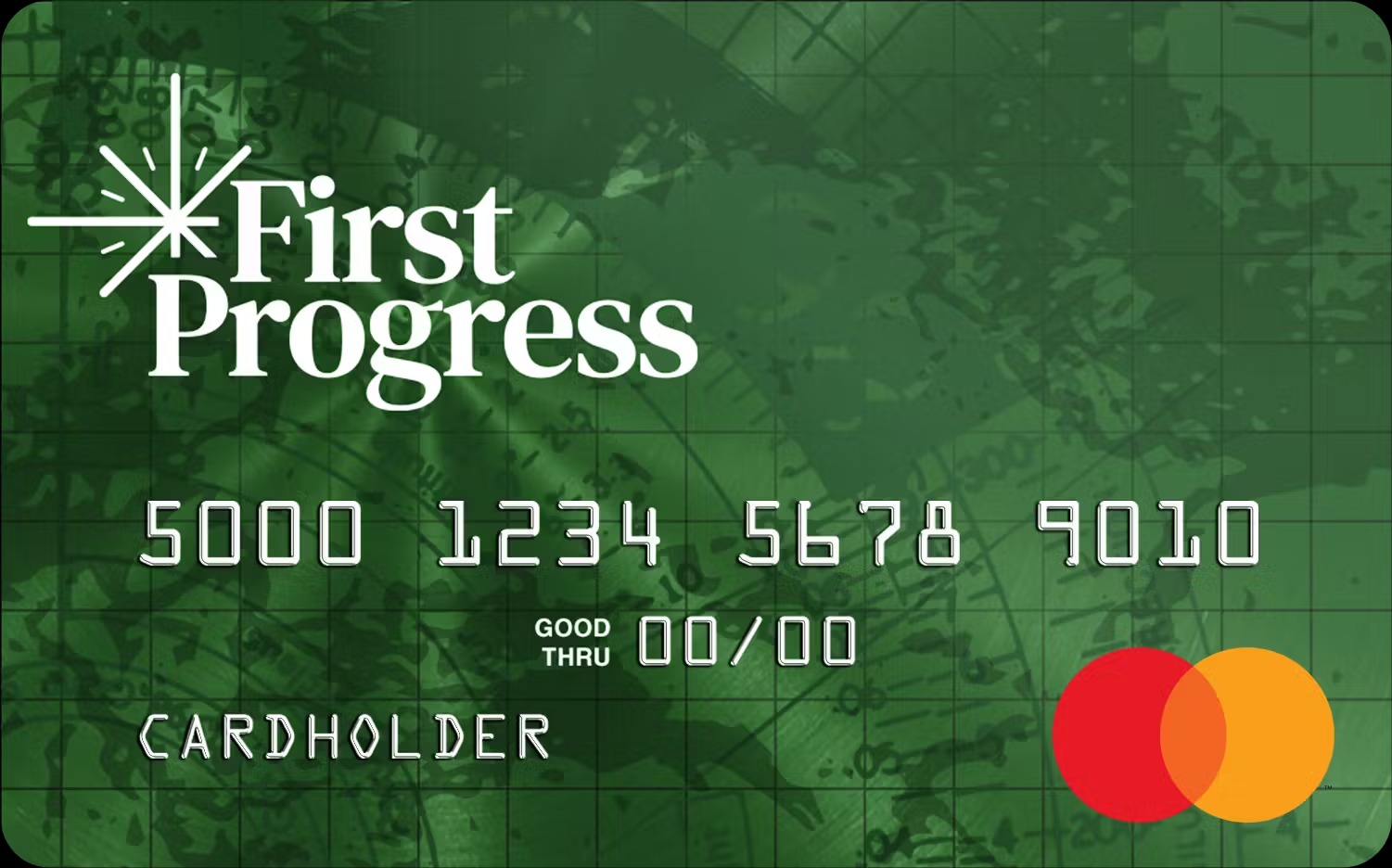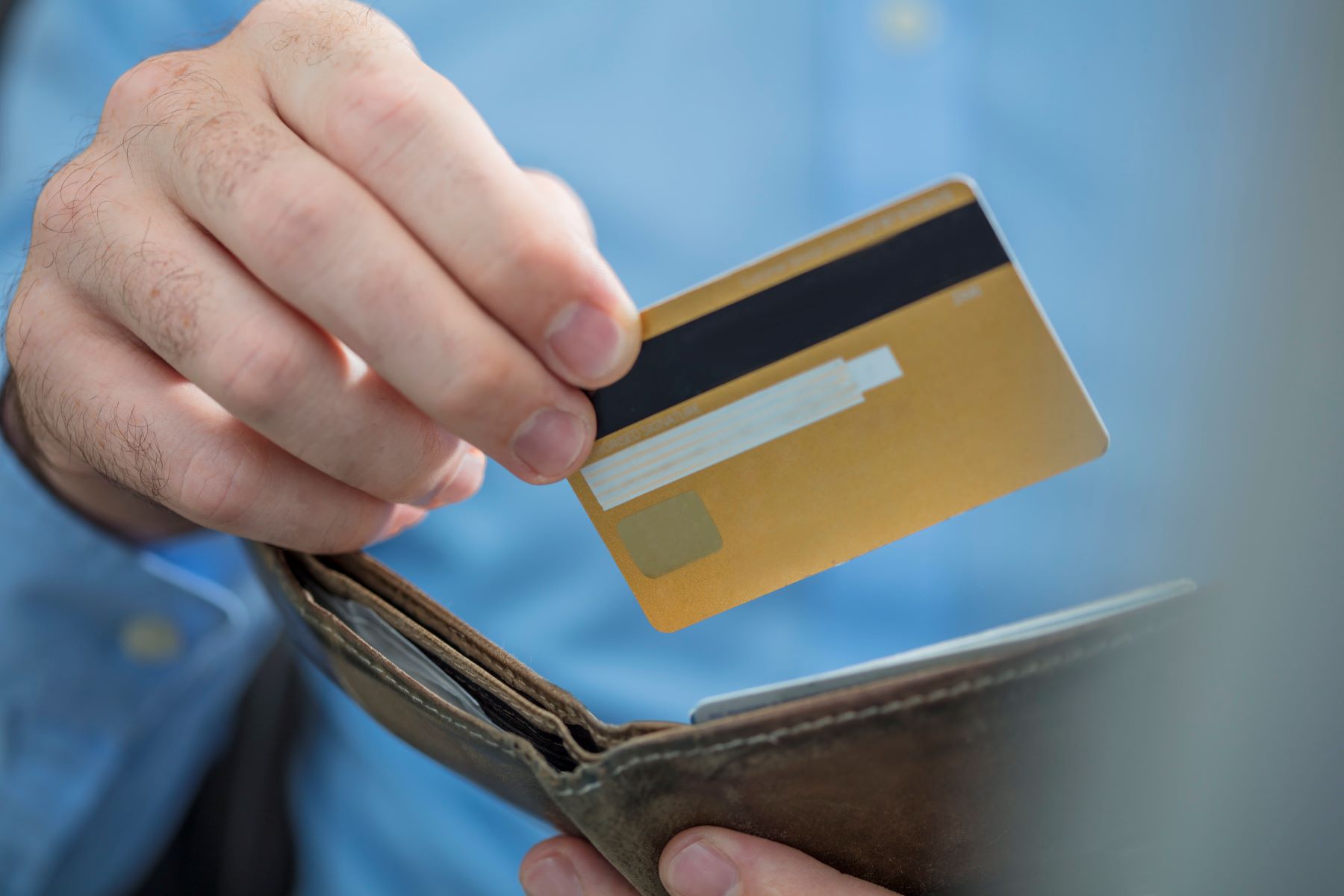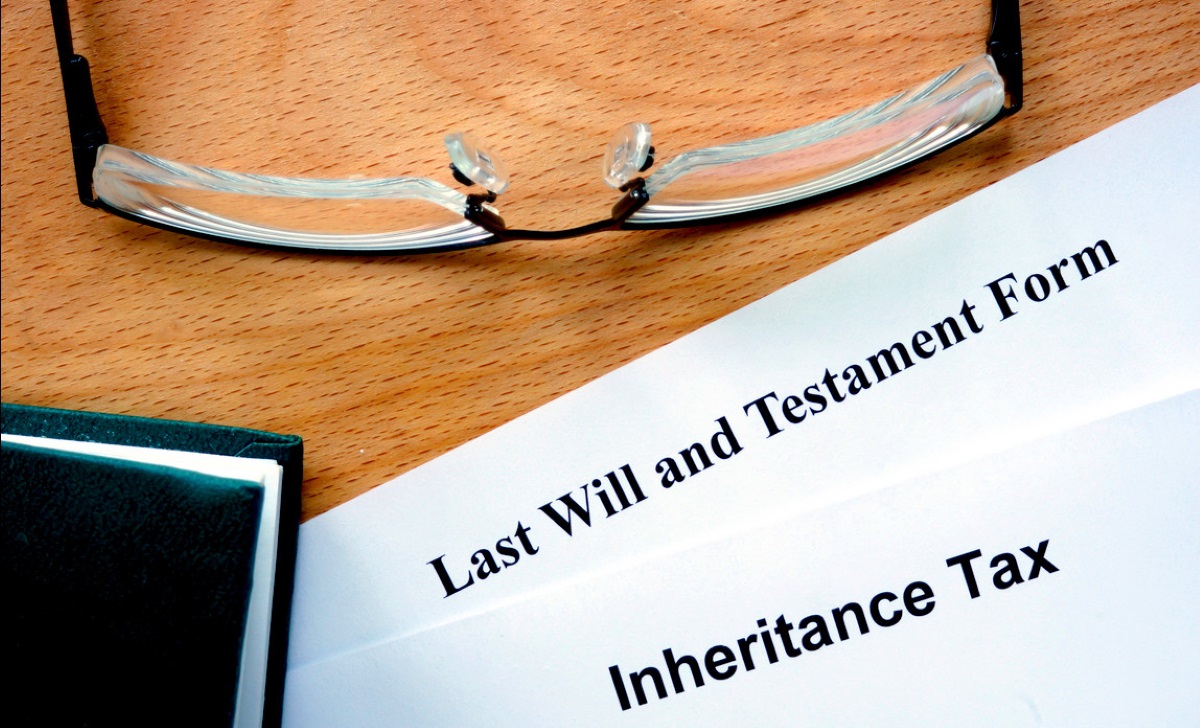

Finance
How To Build Good Credit Without A Credit Card
Modified: March 3, 2024
Learn effective strategies to establish and improve your credit without relying on credit cards. Enhance your financial well-being with these finance tips.
(Many of the links in this article redirect to a specific reviewed product. Your purchase of these products through affiliate links helps to generate commission for LiveWell, at no extra cost. Learn more)
Table of Contents
- Introduction
- Understanding Credit
- Importance of Good Credit
- Alternatives to Building Credit Without a Credit Card
- Establishing a Solid Payment History
- Utility Bills
- Rent Payments
- Cell Phone Bills
- Peer-to-Peer Lending
- Credit Builder Loans
- Secured Loans
- Authorized User on Someone Else’s Credit Card
- Monitoring and Maintaining Good Credit
- Regularly Checking Credit Reports
- Paying Bills on Time
- Keeping Credit Utilization Low
- Conclusion
Introduction
Building good credit is crucial for financial success. A strong credit history not only helps you qualify for loans and credit cards, but it also affects your ability to secure affordable interest rates and favorable terms. While many people believe that having a credit card is the only way to establish credit, there are actually alternative methods to build good credit without a credit card.
In this article, we will explore these alternative ways to build credit and guide you on the path to financial stability. Understanding how credit works and why it is important will set the stage for exploring practical strategies that don’t require a credit card.
Before delving into the alternatives, let’s briefly break down what credit is. Credit is essentially a measure of your trustworthiness as a borrower, as demonstrated by your history of repaying borrowed money. Credit scores, such as those calculated by credit bureaus like Experian, Equifax, and TransUnion, are numerical representations of your creditworthiness.
The importance of good credit cannot be overstated. Lenders use credit scores to assess the risk they take when lending to someone. A high credit score implies a lower risk, giving you access to more credit options at favorable terms. On the other hand, a low credit score can limit your borrowing options and make it more challenging to secure loans or obtain credit cards.
Now that we understand the significance of good credit, let’s explore the alternative ways you can build credit without relying on a credit card.
Understanding Credit
Before diving into the different strategies for building credit without a credit card, it’s essential to have a basic understanding of how credit works. Credit is a financial tool that allows individuals to borrow money or access goods and services with the promise of repayment in the future.
When you apply for a loan or a credit card, lenders evaluate your creditworthiness to determine if you are a responsible borrower. They typically rely on your credit history and credit score to assess your risk level. Your credit history consists of various factors, including your payment history, the length of your credit history, the types of credit you have, and your credit utilization ratio.
Your payment history is one of the most critical aspects of your credit report. It shows whether you have made timely payments on your debts in the past. Late payments, defaults, or other negative items on your report can significantly impact your credit score. It’s essential to make timely payments, as they can contribute to building and maintaining good credit.
The length of your credit history also plays a role in determining your creditworthiness. Lenders prefer borrowers with a longer credit history, as it provides more data on how they handle their debts over time. If you have a thin or limited credit history, it may be more challenging to demonstrate your creditworthiness.
The types of credit you have also matter. Having a mix of different types of credit can demonstrate your ability to handle various financial responsibilities. These types can include installment loans, such as car loans or mortgages, as well as revolving credit, like credit cards.
Your credit utilization ratio is another crucial factor. It represents the percentage of your available credit that you are currently using. A high credit utilization ratio can lower your credit score, as it suggests that you may be relying too heavily on credit and have difficulty managing your debts.
Understanding these key aspects of credit will help you make informed decisions when it comes to building credit without a credit card. By focusing on these factors, you can establish a solid credit history and improve your creditworthiness.
Importance of Good Credit
Having good credit is vital for maintaining a healthy financial life. It can impact various aspects of your personal and professional life, ranging from your ability to secure loans and credit cards to renting an apartment or even getting a job. Let’s explore why good credit is so important.
1. Access to Loans and Credit: Good credit opens doors to favorable loan and credit options. Lenders are more willing to offer you loans with competitive interest rates and flexible repayment terms when they see a strong credit history. Whether you need a car loan, a mortgage, or a personal loan, having good credit will make it easier and less costly to borrow money.
2. Lower Interest Rates: When you have good credit, you are more likely to qualify for lower interest rates on loans and credit cards. This means you’ll pay less in interest over time, saving you money in the long run. A lower interest rate can significantly impact the affordability of your monthly payments and help you pay off your debts faster.
3. Renting an Apartment: Landlords often consider credit history when evaluating rental applications. A good credit score demonstrates financial responsibility, making you a more desirable tenant. It can increase your chances of being approved for rental properties and may allow you to negotiate better lease terms.
4. Employment Opportunities: Many employers perform background checks that include reviewing credit reports as part of the hiring process. While not all employers do this, having good credit can be an advantage if the position involves financial responsibilities or requires a high level of trust. A positive credit history can help you stand out from other candidates and potentially secure employment.
5. Insurance Premiums: Your credit history can also influence insurance companies’ decision-making. Some insurers use credit information to assess the risk of insuring an individual. Those with good credit may be eligible for lower insurance premiums, as they are perceived as less of a risk.
6. Starting a Business: If you have aspirations of starting your own business, having good credit can play a significant role. It can make it easier to secure business loans, lines of credit, and vendor financing. A strong credit history can also help you establish relationships with suppliers and lenders, laying the groundwork for your business’s success.
As you can see, good credit has far-reaching implications for your financial life. It’s not just about the ability to borrow money; it can impact your overall financial well-being and open up opportunities that may otherwise be challenging to attain. That’s why it’s crucial to focus on building and maintaining good credit, even if you don’t have a credit card.
Alternatives to Building Credit Without a Credit Card
While credit cards are commonly used to build credit, they are not the only option available. If you prefer not to have a credit card or are unable to qualify for one, there are alternative ways to establish and improve your creditworthiness. Let’s explore some of these alternatives:
1. Establishing a Solid Payment History: Payment history is a crucial factor in determining your creditworthiness. Even without a credit card, you can build credit by consistently making payments on time. This includes any loans, utility bills, rent payments, or other financial obligations you have. Timely payments show lenders that you are responsible and can be trusted to repay debts.
2. Utility Bills: Many utility companies report payment history to credit bureaus. By ensuring that your utility bills, such as electricity, water, and gas, are paid on time, you can positively impact your credit. Be sure to set up automatic payments or reminders to avoid any missed or late payments.
3. Rent Payments: Rent payments can also contribute to building credit. Some rent reporting services can report your rent history to credit bureaus, allowing you to demonstrate your ability to make consistent, timely payments. If your landlord does not utilize such services, you can consider signing up for a third-party service to report your rental payments.
4. Cell Phone Bills: Similar to utility bills, your cell phone provider may report your payment history to credit bureaus. By consistently paying your cell phone bill on time, you can help establish a positive credit record. It’s important to note that not all cell phone providers report payments, so you may need to inquire with your provider or consider switching to one that does.
5. Peer-to-Peer Lending: Peer-to-peer lending platforms allow individuals to borrow money directly from other individuals, bypassing traditional financial institutions. Taking out a loan through a reputable peer-to-peer lending platform and making regular payments can help build credit. Ensure that the platform reports loan payments to credit bureaus for maximum impact.
6. Credit Builder Loans: Some financial institutions offer credit builder loans specifically designed for individuals looking to establish credit. These loans typically have lower borrowing amounts and are secured by funds held in a savings account. As you make consistent payments on the loan, the lender reports your positive payment history, helping you build credit over time.
7. Secured Loans: Similar to credit builder loans, secured loans require collateral to secure the loan. This collateral, such as a car or savings account, reduces the lender’s risk. By making timely payments on a secured loan, you can establish credit and demonstrate responsible borrowing behavior.
8. Authorized User on Someone Else’s Credit Card: If you have a trusted family member or friend with a good credit history, you can ask to become an authorized user on their credit card. Their positive payment history and credit limit can be beneficial in building your own credit. However, it’s essential to choose someone responsible who utilizes their credit card wisely.
Remember, building credit takes time and patience. Regardless of the method you choose, be consistent, and make timely payments to establish a positive credit history. Regularly monitor your credit reports to ensure accuracy and look for opportunities to improve your credit. By exploring these alternatives, you can build good credit without relying on a credit card.
Establishing a Solid Payment History
One of the most effective ways to build credit without a credit card is by establishing a solid payment history. Your payment history is a crucial component of your credit profile, and it showcases your ability to manage your financial obligations responsibly. Building a positive payment history demonstrates to lenders that you are trustworthy and reliable. Here are some strategies to establish a solid payment history:
1. Paying Bills on Time: Make it a priority to pay all of your bills on time, whether it’s your rent, utility bills, or any other financial obligations. Late payments can have a negative impact on your credit score and may stay on your credit report for up to seven years. Setting up automatic payments or reminders can help ensure you never miss a payment.
2. Utility Bills: Your utility bill payments, such as electricity, gas, water, and internet services, can contribute to building your credit history. Some utility companies report payment data to credit bureaus. By consistently paying these bills on time, you can establish a positive payment history and improve your creditworthiness.
3. Rent Payments: Rent payments are typically not automatically reported to credit bureaus. However, there are rent reporting services available that can help you include your rental payments in your credit history. These services verify your payments and report them to credit bureaus, allowing you to build credit through timely rent payments.
4. Cell Phone Bills: Similar to utility bills, some cell phone providers report payment data to credit bureaus. Paying your cell phone bill on time every month can help build a positive payment history. Check with your provider to see if they report these payments and consider switching to a provider that does if yours does not.
5. Personal Loans: Taking out a personal loan from a reputable lender and making timely payments can help establish a positive payment history. Although these loans often require a credit check, there are lenders who specialize in working with individuals who have limited or no credit history. Making consistent payments on the loan demonstrates your ability to manage debt responsibly.
6. Peer-to-Peer Lending: Peer-to-peer lending platforms connect borrowers with individual lenders. By borrowing through these platforms and making regular payments, you can establish a positive payment history. Look for peer-to-peer lenders that report payment data to credit bureaus to maximize the impact on your credit history.
Remember, building a solid payment history takes time and consistency. Aim to make all of your payments on time and, if possible, pay more than the minimum due to reduce your debt and demonstrate responsible financial management. Regularly monitor your credit report to ensure the accuracy of reported payments and address any discrepancies promptly.
By establishing a solid payment history through timely payments on your bills and other financial obligations, you can demonstrate your creditworthiness and build a strong foundation for your overall credit profile. This will help you in securing favorable terms for future borrowing and improving your financial standing.
Utility Bills
While utility bills are a necessary expense in our daily lives, they can also serve as a valuable tool for building credit without a credit card. Many utility companies, such as electricity, water, gas, and internet providers, report payment data to credit bureaus. Here’s how you can use utility bills to your advantage when it comes to building credit:
1. Timely Payments: The most crucial factor in using utility bills to build credit is making timely payments. Pay your utility bills in full and on time every month. Late or missed payments can negatively impact your credit score and hinder your progress in establishing good credit. Set up automatic payments or reminders to ensure you never forget a payment.
2. Contact Your Utility Provider: If you are not sure whether your utility company reports payment data to credit bureaus, it’s worth contacting them directly to inquire. They can provide you with information on whether they report payments and to which credit bureaus. If they don’t report payments, ask if they participate in any rent reporting services that include utility bills.
3. Consider Rent Reporting Services: If your utility company does not report payment data to credit bureaus, you can explore rent reporting services that include utility bills. These services, such as LevelCredit or RentTrack, verify and report your rental and utility payment history to credit bureaus. Being proactive in utilizing a rent reporting service can help boost your credit score and build your credit history.
4. Monitor Your Credit Report: Regularly check your credit reports from the major credit bureaus, such as Experian, Equifax, and TransUnion, to ensure that your utility bill payments are being reported accurately. Look for any errors or inconsistencies and promptly dispute them if necessary. Monitoring your credit report allows you to stay informed about your credit-building progress.
5. Expand Your Utility History: While electricity and water bills are commonly reported, don’t limit yourself to just these two. Some utility companies also report other bills such as internet, cable, and phone services. Check with your providers to see if they report to credit bureaus. By including a wider range of utility bills in your credit history, you can strengthen your credit profile.
6. Use Your Payment History to Your Advantage: Building a solid payment history with utility bills can provide you with a positive credit foundation for future credit applications. When you’re ready to apply for a credit card or other loans, your consistent payment history can demonstrate your reliability and responsible financial behavior to lenders.
Remember, using utility bills to build credit requires consistent and timely payments. By making on-time payments and ensuring that your utility bills are being reported correctly, you can steadily improve your creditworthiness. Building good credit is a long-term process, and every positive payment adds up to strengthen your credit profile.
Rent Payments
Rent payments, which are often one of the largest monthly expenses for individuals and families, can also serve as a valuable tool for building credit without a credit card. While rent payments are typically not automatically reported to credit bureaus, there are ways to utilize them to establish and improve your creditworthiness. Here’s how you can leverage rent payments to build credit:
1. Rent Reporting Services: Rent reporting services, such as RentTrack or LevelCredit, allow you to include your rental payment history in your credit profile. These services verify your rent payments and report them to credit bureaus, giving you the opportunity to build credit through consistent, on-time rent payments. Consider signing up for a rent reporting service if your landlord does not report payments to credit bureaus.
2. Check with Your Landlord: Some landlords may be open to reporting rental payments to credit bureaus upon request. If you have a good relationship with your landlord, it may be worth discussing the possibility of reporting your rent payments. Being proactive in communicating your credit-building goals could lead to a mutually beneficial arrangement.
3. Document Your Payments: Keep thorough records of your rent payments, including the dates, payment method, and amount paid. These records may come in handy if you need to provide documentation to a rent reporting service or if you decide to work with a lender who wants to verify your rental payment history.
4. Build a Positive Rental History: Consistently paying your rent on time and in full establishes a positive rental history. This demonstrates to future landlords and lenders that you are reliable and responsible with your financial obligations. A solid rental history can be valuable when applying for new rental agreements or loans in the future.
5. Consider Newer Credit Scoring Models: Some newer credit scoring models, such as FICO® Score XD and VantageScore, incorporate alternative data, including rental payment history, to assess creditworthiness. While these models may not be as widely used as traditional scoring models, they provide an opportunity to showcase your on-time rent payments and build credit through non-traditional means.
6. Maintain Open Communication: Keep an open line of communication with your landlord regarding your intention to build credit through rent payments. They may be more willing to accommodate your request if they understand your goals. It’s also important to ensure that your landlord receives your rent payments promptly and without any issues.
Building credit through rent payments requires consistency and careful management. While it may not be as straightforward as other credit-building methods, leveraging your rent payments can be a valuable tool in establishing a positive credit history and improving your overall creditworthiness.
Cell Phone Bills
Cell phone bills can play a significant role in building credit, even without a credit card. While not all cell phone providers report payment data to credit bureaus, many do. By making consistent, on-time payments for your cell phone bill, you can establish a positive payment history and improve your creditworthiness. Here’s how you can leverage your cell phone bills to build credit:
1. Timely Payments: The key to utilizing your cell phone bill to build credit is making timely payments. Pay your cell phone bill in full and on time every month. Consistent, on-time payments demonstrate your ability to manage financial obligations responsibly and positively impact your credit history.
2. Confirm Reporting: Contact your cell phone provider to determine if they report payment data to the credit bureaus. Not all providers report payments, so it’s essential to confirm their reporting practices. If your current provider does not report, consider switching to one that does or explore alternative providers who offer credit reporting for payment history.
3. Opt for Auto-Pay: Set up automatic payments for your cell phone bill to ensure you never miss a payment. Auto-pay helps you stay consistent with your payments and reduces the risk of late or missed payments that could negatively impact your credit. Just remember to review your statements to ensure accuracy and to have sufficient funds in your account.
4. Monitor Your Credit Report: Regularly check your credit reports to ensure that your cell phone bill payments are being reported accurately. Keep an eye out for any discrepancies and promptly address them with both the credit bureau and your cell phone provider. Monitoring your credit report allows you to stay informed about your credit-building progress.
5. Bundle with Other Services: Some cell phone providers offer bundled services, such as internet or cable TV. If you have the opportunity to bundle your cell phone service with other utilities, consider doing so. This can provide additional payment data to be reported to credit bureaus, further strengthening your credit history.
6. Explore Alternative Credit Scoring Models: Alternative credit scoring models, such as FICO® Score XD and VantageScore, may include utility and telecom payment data to assess creditworthiness. These models can provide an opportunity to showcase your on-time payment history for your cell phone bill when traditional credit scoring models may not consider it.
Remember, building credit through cell phone bills requires consistent, on-time payments. By making timely payments and ensuring that your provider reports your payment data accurately, you can establish a positive credit history and improve your overall creditworthiness. Building good credit takes time and dedication, but leveraging your cell phone bills can be a valuable piece of the puzzle.
Peer-to-Peer Lending
A growing alternative to traditional lending sources, peer-to-peer (P2P) lending platforms offer individuals the opportunity to borrow money directly from other individuals, without the involvement of traditional financial institutions. This unique lending model can be an effective means of building credit without a credit card. Here’s how you can leverage peer-to-peer lending to establish and improve your creditworthiness:
1. Research P2P Lending Platforms: Start by researching reputable peer-to-peer lending platforms. Some well-known platforms include LendingClub, Prosper, and Upstart. Look for platforms that report borrower payment data to credit bureaus, as this will ensure your timely payments are reflected in your credit history.
2. Borrow Responsibly: When applying for a loan on a peer-to-peer lending platform, borrow only what you can comfortably afford to repay. Demonstrating responsible borrowing behavior is essential in building a positive credit history. Aim to make all your loan payments on time and in full to establish a solid payment track record.
3. Build a Positive Payment History: Consistent, on-time payments on your peer-to-peer loan can help you build a positive payment history. This demonstrates to future lenders your ability to manage debt responsibly and increases your creditworthiness. Make it a priority to pay your loan installments on time and avoid any late or missed payments.
4. Explore Co-Signed Loans: If you have difficulty qualifying for a peer-to-peer loan on your own due to limited credit history or a low credit score, consider applying for a co-signed loan. Having a creditworthy co-signer can enhance your chances of approval and improve the terms of the loan. However, be aware that any missed payments or defaults can negatively impact both the borrower’s and co-signer’s credit.
5. Regularly Monitor Your Credit: As you make timely payments on your peer-to-peer loan, it’s essential to monitor your credit reports regularly. Ensure that your payment history is accurately reported by the peer-to-peer lender to the credit bureaus. If you notice any discrepancies or errors, take immediate steps to rectify them to maintain a positive credit profile.
6. Diversify Your Credit Mix: Building a diverse credit mix can positively impact your creditworthiness. By adding a peer-to-peer loan to your credit profile, you can demonstrate your ability to handle different types of credit. This diversity showcases your financial responsibility and can enhance your credit score.
Peer-to-peer lending provides an alternative avenue for building credit without relying on credit cards. By securing a loan from a reputable platform and making consistent, on-time payments, you can establish a positive payment history and improve your creditworthiness. Remember to exercise responsible borrowing habits and stay vigilant in monitoring your credit to ensure your efforts help you build a strong credit foundation.
Credit Builder Loans
For individuals looking to establish credit without a credit card, credit builder loans can be an effective option. These specialized loans are designed to assist individuals in building or improving their credit profiles. Credit builder loans work by depositing loan funds into a secured account, and as you make regular payments, your payment history is reported to credit bureaus. Here’s how credit builder loans can help you build credit:
1. Understand How Credit Builder Loans Work: With a credit builder loan, the loan funds are not disbursed to you upfront. Instead, the funds are held in a secured account, such as a certificate of deposit (CD) or a savings account. You make monthly payments toward the loan, and these payments are reported to credit bureaus, helping to establish a positive payment history.
2. Make Timely Payments: The primary goal of a credit builder loan is to demonstrate that you can make payments on time and consistently. Set up automatic payments or reminders to ensure you never miss a payment. Timely payments are crucial for building a positive credit history and improving your creditworthiness.
3. Start Small: Credit builder loans typically have lower borrowing amounts compared to traditional loans. Beginning with a smaller loan amount makes it more manageable and increases the likelihood of making on-time payments. As you successfully repay the loan, you can gradually increase the borrowing amount if needed.
4. Monitor Your Progress: Regularly monitor your credit reports to ensure that your credit builder loan payments are being reported accurately by the lender. Monitoring your credit allows you to verify that your efforts in building credit are yielding positive results. It also enables you to identify and address any errors or discrepancies promptly.
5. Utilize Funds After Loan Completion: Once you have successfully repaid the credit builder loan, the funds held in the secured account are released to you. You can use this money as a down payment on a larger loan, such as a car loan or a mortgage, further boosting your creditworthiness and allowing you to progress in your financial goals.
6. Explore Different Lenders: Credit builder loans are offered by various financial institutions, including credit unions, community banks, and online lenders. It’s worth comparing loan terms, interest rates, and fees from different lenders to find the best option for your needs. Make sure to choose a reputable lender that reports payment data to credit bureaus.
Credit builder loans can be an effective tool for establishing credit without a credit card. By making timely payments and building a positive payment history, you can gradually improve your creditworthiness and open doors to more favorable borrowing options in the future. Remember to exercise responsible borrowing habits and diligently monitor your credit to maximize the benefits of a credit builder loan.
Secured Loans
Secured loans are another alternative for building credit without a credit card. These loans require collateral, such as a car, savings account, or other valuable assets that are used as security for the loan. By obtaining a secured loan and making regular payments, you can establish a positive payment history and improve your creditworthiness. Here’s how secured loans can help you build credit:
1. Understand Collateral: Secured loans require collateral, which serves as security for the lender in case the borrower defaults on the loan. Collateral can include assets like a vehicle, savings account, or even jewelry. Before applying for a secured loan, evaluate your available collateral and ensure that you are comfortable with the potential risk associated with using these assets as security.
2. Borrow Responsibly: When applying for a secured loan, borrow only what you need and can afford to repay. Responsible borrowing habits are crucial for building credit. Taking on too much debt or failing to make timely payments can have a negative impact on your creditworthiness.
3. Make Timely Payments: One of the primary purposes of a secured loan is to establish a positive payment history. Consistently making timely payments shows lenders that you are reliable and can be trusted to meet your financial obligations. Set up automatic payments or reminders to ensure you never miss a payment.
4. Monitor Your Credit: Regularly monitor your credit reports to ensure that your secured loan payments are being reported accurately by the lender. This allows you to keep track of your credit-building progress and address any errors or discrepancies promptly. Monitoring your credit also enables you to see how your secured loan impacts your overall credit score.
5. Gradually Increase Creditworthiness: As you make timely payments on your secured loan, you gradually establish a positive credit history. This can open doors to higher credit limits, lower interest rates, and more favorable borrowing terms in the future. Building credit takes time and requires consistent financial responsibility.
6. Manage Collateral Carefully: Since the collateral secures the loan, it’s essential to manage it responsibly. For example, if you have a secured loan against your vehicle, make sure to maintain insurance coverage and perform regular maintenance to protect the value of the asset. Failure to manage collateral effectively could result in additional financial difficulties if the asset is lost.
Secured loans provide an opportunity to build credit while using collateral as security. By making timely payments and establishing a positive payment history, you demonstrate your creditworthiness and improve your chances of qualifying for future loans and credit cards. Remember to borrow responsibly, monitor your credit, and manage your collateral carefully to make the most of secured loans as a credit-building tool.
Authorized User on Someone Else’s Credit Card
An effective way to build credit without actually having a credit card of your own is by becoming an authorized user on someone else’s credit card. This arrangement allows you to benefit from the primary cardholder’s credit history and established credit line. By being added as an authorized user, you can potentially build or improve your credit profile. Here’s how becoming an authorized user can help you build credit:
1. Choose a Trustworthy Cardholder: When considering becoming an authorized user, select someone you trust and who has a strong credit history. Ideally, this person should have a long-standing credit card account with a history of on-time payments and responsible credit utilization. Being associated with a reliable cardholder increases the likelihood of positive credit reporting.
2. Confirm Reporting Practices: Before becoming an authorized user, it’s crucial to confirm with the cardholder’s credit card issuer whether they report authorized user activity to credit bureaus. Not all credit card issuers report authorized user information, so it’s essential to ensure that your activity will be reported to build your credit history.
3. Establish Boundaries and Communications: It’s essential for both parties to establish clear boundaries and communicate openly. Agree on how the credit card will be used, who will be responsible for making payments, and how the authorized user will reimburse the primary cardholder for any charges made. Smooth communication and mutual understanding can help maintain a positive relationship and ensure credit-building success.
4. Monitor Credit Card Activity: While you are an authorized user on someone else’s credit card, it’s essential to monitor the account activity regularly. Keep track of charges and ensure that all transactions made are legitimate and authorized. Staying vigilant helps protect both the primary cardholder’s credit and your own financial well-being.
5. Benefit from Their Credit History: As an authorized user, you can potentially benefit from the cardholder’s positive credit history. Their responsible credit behavior, including on-time payments and low credit utilization, can reflect positively on your credit report. This can help establish a positive credit history and increase your creditworthiness.
6. Establish Your Own Credit: While being an authorized user can help you build credit, it’s essential to take steps to establish your credit independently as well. This can include applying for other credit-building options, such as a secured loan or a credit builder account. Diversify your credit portfolio to demonstrate your ability to handle different types of credit responsibly.
Keep in mind that becoming an authorized user comes with responsibilities. Ensure that you use the credit card responsibly and make all agreed-upon payments promptly. This arrangement should be viewed as a collaboration to benefit both parties involved. With proper communication, trust, and financial discipline, becoming an authorized user on someone else’s credit card can be a valuable tool for building your creditworthiness.
Monitoring and Maintaining Good Credit
Once you have started building your credit using alternative methods, it’s crucial to monitor and maintain your good credit over time. Monitoring your credit and staying proactive can help you identify and address any issues that may arise and ensure you continue on the path to financial success. Here’s how you can effectively monitor and maintain your good credit:
1. Regularly Check Your Credit Reports: Obtain copies of your credit reports from the major credit bureaus – Experian, Equifax, and TransUnion – and review them for accuracy. Check for any errors, incorrect information, or signs of identity theft. Dispute any discrepancies promptly to keep your credit report up to date and error-free.
2. Monitor Your Credit Score: Keep an eye on your credit score, which is a numerical representation of your creditworthiness. Many free credit monitoring services and financial applications provide access to credit scores. Monitoring your credit score helps you track your progress and identify any areas that need improvement.
3. Pay Your Bills on Time: Timely payments on all of your financial obligations are vital for maintaining good credit. Aim to pay all your bills, including loans, utility bills, and rent, on time to avoid late payments or defaults, which can negatively impact your credit score. Set reminders or enroll in automatic payments to ensure punctuality.
4. Keep Credit Utilization Low: Credit utilization refers to the percentage of your available credit that you are using. Keeping your credit utilization low, ideally below 30%, demonstrates responsible credit management. High utilization can signal financial instability. Paying off balances in full or keeping them low can help maintain a healthy utilization rate.
5. Avoid Opening Too Many New Credit Accounts: While having a diverse credit portfolio can be beneficial, opening multiple new credit accounts within a short period may raise concerns for lenders. Each application typically results in a hard inquiry, which can temporarily lower your credit score. Be selective and strategic when applying for new credit accounts.
6. Use Credit Responsibly: Responsible credit usage involves borrowing only what you can afford to repay and maintaining a history of on-time payments. Avoid maxing out credit cards, taking on excessive debt, or making unnecessary purchases. Use credit as a tool for building a solid financial foundation, not as a means of living beyond your means.
7. Keep Accounts Active: Keeping old accounts active can contribute positively to your credit history and length of credit. If you have a credit card or loan that you no longer use, keep the account open, make occasional purchases, and pay off the balance to maintain a positive credit history.
8. Know Your Financial Limits: Establish a budget and understand your financial limits. This helps you manage your finances effectively and avoid unnecessary debt. Knowing your limits allows you to make informed decisions when it comes to credit utilization and borrowing, ensuring that you can maintain good credit over the long term.
Remember, maintaining good credit is an ongoing process that requires diligence and responsible financial management. By regularly monitoring your credit, paying bills on time, keeping credit utilization low, and using credit responsibly, you can establish a solid credit foundation and enjoy the benefits of good credit throughout your financial journey.
Regularly Checking Credit Reports
Regularly checking your credit reports is a crucial part of maintaining good credit and ensuring the accuracy of your credit information. Credit reports provide a comprehensive overview of your credit history, including your accounts, payment history, and credit inquiries. Here’s why regularly monitoring your credit reports is essential and how you can do it effectively:
Why Regularly Check Credit Reports?
1. Identify Errors and Inaccuracies: Credit reports can sometimes contain errors or inaccuracies that negatively impact your credit score. By regularly reviewing your credit reports, you can identify any incorrect information, such as late payments or accounts you didn’t open. Reporting and resolving errors promptly can help protect your creditworthiness.
2. Detect Unauthorized Activity: Monitoring your credit reports allows you to catch any signs of fraudulent or unauthorized activity. Unfamiliar accounts, unauthorized inquiries, or suspicious changes in your credit history can be indications of identity theft or fraud. Early detection enables you to take immediate action to mitigate any potential damage.
3. Track Your Credit Building Progress: Checking your credit reports allows you to track your credit-building efforts. You can monitor how your timely payments and responsible credit usage positively impact your credit history and credit score over time. It serves as a measure of your financial progress and motivates you to continue managing credit responsibly.
How to Check Credit Reports Effectively:
1. Obtain Your Credit Reports: Request copies of your credit reports from the major credit bureaus – Experian, Equifax, and TransUnion. Under federal law, you can access one free credit report per bureau annually through AnnualCreditReport.com. Additionally, some financial institutions or credit monitoring services may offer free access to credit reports.
2. Review Each Credit Report Carefully: Take the time to review each credit report thoroughly. Check for inaccuracies, such as incorrect personal information, unfamiliar accounts, or errors in payment history. Look for any signs of potential fraud, such as unauthorized inquiries or accounts you didn’t open.
3. Dispute Any Errors or Inaccuracies: If you identify any errors or discrepancies, take immediate action. Follow the credit bureau’s procedures to dispute the incorrect information and provide necessary documentation to support your claim. They will investigate the matter and make the appropriate corrections if warranted.
4. Consider Credit Monitoring Services: Credit monitoring services can provide continuous access to your credit reports and send alerts about any changes or potential fraud. Some services also offer additional features, such as credit score tracking and identity theft protection. Evaluate the features, costs, and reputation of different monitoring services to find one that suits your needs.
5. Monitor All Three Credit Bureaus: It’s important to check your credit reports from all three major credit bureaus. While the information may be similar, discrepancies and errors can occur on one report and not the others. Monitoring all three bureaus ensures you have a comprehensive view of your credit status.
Regularly checking your credit reports is an essential habit for maintaining good credit. By identifying and addressing errors, detecting unauthorized activity, and tracking your credit progress, you can protect your creditworthiness and make informed decisions about your financial well-being.
Paying Bills on Time
Paying bills on time is a fundamental aspect of maintaining good credit. Timely payments demonstrate your financial responsibility and play a crucial role in building and preserving a solid credit history. Here’s why paying bills on time is important and how you can ensure punctuality in your payments:
Importance of Timely Payments:
1. Positive Payment History: Your payment history is a significant factor in determining your creditworthiness. Timely payments show lenders that you honor your financial obligations and can be trusted to repay borrowed money. Consistently paying bills on time strengthens your credit history and enhances your creditworthiness.
2. Impact on Credit Score: Payment history has a significant impact on your credit score, which is a numerical representation of your creditworthiness. Late or missed payments can have a detrimental effect on your score, making it harder to qualify for new credit or obtain favorable interest rates. On-time payments are crucial for maintaining a good credit score.
3. Lower Risk Perception: Lenders perceive borrowers who make timely payments as lower risk. When you consistently pay your bills on time, you demonstrate your ability to manage your finances responsibly. This lowers the risk associated with lending to you, potentially leading to better borrowing terms and opportunities.
How to Ensure Timely Payments:
1. Create a Budget: Establish a detailed budget that includes all your income and expenses. Allocate enough funds to cover your bills and prioritize timely payments. Make sure you have a clear understanding of when each bill is due to avoid any potential missed or late payments.
2. Set up Reminders: Utilize reminders to stay on top of your payments. Set alarms on your phone or use calendar alerts to notify you of approaching due dates. Take advantage of online banking or financial apps that offer payment reminders and automate the process to ensure timely payments without added stress.
3. Enroll in Automatic Payments: If available, sign up for automatic bill payments through your bank or the biller’s website. Automatic payments can be a convenient way to ensure on-time payments, as the funds are deducted from your designated account on the scheduled due date. However, it is essential to monitor your accounts to ensure sufficient funds are available.
4. Structure Due Dates: If possible, align your bill due dates with your income schedule. This strategic approach allows for better cash flow management, making it easier to pay bills on time without financial strain.
5. Consider Payment Alerts: Some financial institutions and billers offer payment alert services that notify you by email or text message when a due date is approaching. Take advantage of these alerts to stay informed and avoid any forgetfulness or oversight in paying your bills.
6. Establish an Emergency Fund: Building an emergency fund helps you avoid financial stress and unexpected payment challenges. Having savings set aside can act as a buffer during unexpected circumstances and ensure you can make your payments on time, even during periods of financial hardship.
Remember, paying bills on time is a critical habit for maintaining good credit and financial stability. By prioritizing timely payments, following a budget, and leveraging technology tools, you can establish a positive payment history and ensure a solid foundation for your creditworthiness.
Keeping Credit Utilization Low
Keeping your credit utilization low is a crucial aspect of maintaining good credit and demonstrating responsible credit management. Credit utilization refers to the percentage of your available credit that you are currently utilizing. Effective management of your credit utilization not only helps improve your credit score but also indicates to lenders that you are a responsible borrower. Here’s why keeping credit utilization low is important and how you can achieve it:
The Significance of Low Credit Utilization:
1. Positive Impact on Credit Score: Credit utilization is a key factor in determining your credit score. High credit utilization, where you are using a significant portion of your available credit limit, can negatively impact your score. On the other hand, keeping credit utilization low demonstrates responsible credit management and can boost your credit score.
2. Appears Financially Stable: Low credit utilization sends a signal to lenders that you are financially stable and not overly reliant on credit. When lenders see that you are using a low percentage of your available credit, they perceive you as less of a risk. This can lead to more favorable borrowing terms and financial opportunities.
3. Affordability and Debt Management: Maintaining low credit utilization indicates that you are managing your debt responsibly. It suggests that you are living within your means and not relying heavily on credit to cover expenses. By keeping your credit utilization low, you are more likely to be able to afford your monthly payments and avoid accruing excessive debt.
How to Keep Credit Utilization Low:
1. Monitor Your Credit Utilization Ratio: Keep track of your credit utilization ratio by regularly reviewing your credit card statements and calculating the percentage of your total credit limit that you are currently using. Aim to keep your utilization ratio below 30% ideally, but lower is even better.
2. Pay Off Balances in Full: Paying off your credit card balances in full each month is the best way to maintain low credit utilization. By doing so, you avoid accruing interest charges and keep your overall credit utilization low. Make timely payments to avoid late fees and maintain a positive payment history.
3. Spread Out Expenses Across Multiple Cards: If you have multiple credit cards, distribute your expenses across them rather than relying heavily on one card. This approach helps diversify your credit utilization and keeps individual card balances lower, contributing to a lower overall credit utilization ratio.
4. Consider Increasing Your Credit Limit: Requesting a credit limit increase can help lower your credit utilization ratio, provided you continue to spend responsibly. Contact your credit card issuer and inquire about the possibility of a limit increase. Keep in mind that this option requires a responsible credit history and is not a license to overspend.
5. Avoid Closing Unused Credit Cards: Instead of closing credit cards you no longer use, it is generally advisable to keep them open to maintain a higher total available credit limit. Closing a card reduces your available credit, potentially raising your credit utilization ratio. However, be cautious about keeping cards with high annual fees or temptation for excessive spending.
6. Pay Attention to Timing: Be mindful of the timing of your credit card payments. Balances are typically reported to credit bureaus around the statement closing date. To maintain a low credit utilization ratio, make a payment before the closing date to reflect a lower balance on your credit reports.
By keeping your credit utilization low, you demonstrate responsible credit management and improve your creditworthiness over time. Regularly monitor your utilization ratio, pay off balances in full, and use credit cards wisely to maintain a healthy credit utilization ratio and enhance your overall credit profile.
Conclusion
Building good credit is essential for financial stability and future opportunities. While credit cards are commonly used to establish credit, there are alternative methods available that don’t require a credit card. By understanding credit, recognizing the importance of good credit, and exploring alternative strategies, you can build and maintain a solid credit profile even without relying on a credit card.
Understanding credit helps you navigate the complexities of creditworthiness. Key factors such as payment history, credit utilization, and credit mix all play a role in determining your creditworthiness. Armed with this knowledge, you can take proactive steps to establish a positive credit history.
The importance of good credit cannot be overstated. Good credit opens doors to favorable financial opportunities, including easier access to loans, lower interest rates, and better terms. It can also have positive impacts on renting an apartment, employment prospects, and even insurance premiums. Building and maintaining good credit is a long-term investment in your financial well-being.
Alternatives to credit cards can be used effectively to build credit. By leveraging your regular bills, such as utility bills and rent payments, you can establish a solid payment history. Peer-to-peer lending and credit builder loans provide additional opportunities to demonstrate responsible borrowing behavior. Becoming an authorized user on someone else’s credit card or securing a loan with collateral are alternative options to establish creditworthiness.
To maintain good credit, it is crucial to monitor and manage your credit proactively. Regularly checking your credit reports and credit scores helps you detect any errors, protect against fraud, and track your credit-building progress. Paying bills on time, keeping credit utilization low, and using credit responsibly are key habits to preserve and enhance your creditworthiness.
In conclusion, building good credit without a credit card is possible with the right knowledge and strategies. By understanding credit, exploring alternative methods, and staying vigilant, you can establish and maintain a solid credit profile. Remember that building credit takes time and discipline, but the long-term benefits are well worth the effort. Take control of your financial future and start building your credit today.














